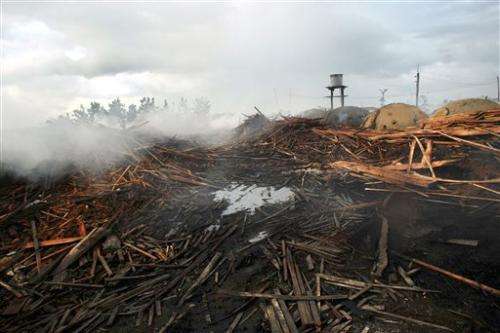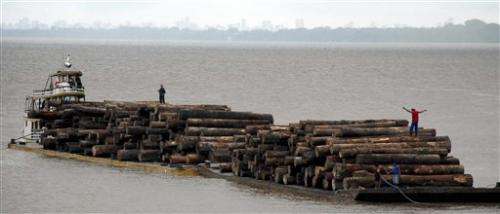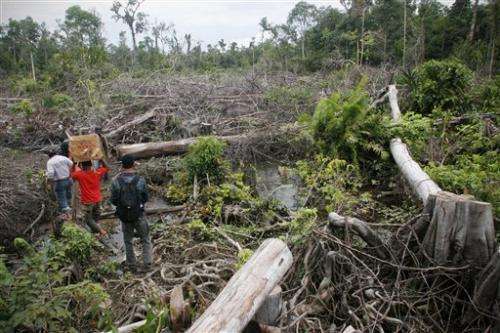Who pays? Who cuts emissions? Five issues for UN climate deal

World governments are hoping that this year will mark a breakthrough in the slow-paced U.N. climate talks.
In Geneva this week, negotiators from more than 190 countries are working on a draft of a deal that's supposed to be adopted in Paris in December. At this point it's a wish list reflecting the diverging preferences of rich countries like the U.S. and Japan, major developing economies such as China and India, oil producers in the Middle East and Pacific islands at risk of being submerged by rising seas.
But governments must try to find common ground on a range of thorny issues over the next 10 months. Here's a look at the most important ones:
___
WHO DOES WHAT?
Unless the world can agree on a formula for how to divide the cuts in heat-trapping carbon emissions that scientists say is required to avoid dangerous levels of warming, Paris will be deemed another failure, just like an acrimonious 2009 climate summit in Copenhagen.
Under the previous U.N. climate deal, the 1997 Kyoto Protocol, only rich countries were required to limit their emissions from mostly using coal, oil and gas. Now, with the majority of emissions coming from developing countries, everyone is supposed to chip in. But how?
While developed countries reject staying the only ones required to cut emissions, developing countries are concerned that a new system would enable rich countries to hand over the responsibility for tackling global warming.
___

BINDING OR NOT
If delegates emerge with a deal in Paris, what are they going to call it? A "protocol," a "legal instrument" or an "agreed outcome with legal force?"
Those who, like the European Union, expect a legally binding protocol with emissions targets for all countries are likely be disappointed. The U.S. doesn't want that, knowing it most likely couldn't get approval by Congress.
Finding a legal form acceptable to everyone is a major challenge. One possibility is requiring each country to set a target but without a penalty for missing it.
___
MONEY, MONEY, MONEY
Some critics of the U.N. talks describe them as a massive wealth transfer scheme. That ignores the fact that most developing countries need money and technology to grow their economies in a cleaner way than today's rich countries did for decades before the impact of carbon pollution was understood. Also, the world's poor are the most vulnerable to climate change and did the least to create the problem.
But the good of the planet does not always take center stage in negotiations. Rich, poor and middle-income countries all want the deal to reflect their national economic priorities.

Right now the trickiest money issue is how to raise the $100 billion in annual climate aid that rich countries promised to give poor nations by 2020.
___
MARKETS
Countries still haven't decided whether the new agreement should include market mechanisms that would allow countries and companies to offset their own emissions by paying for reductions elsewhere. Europeans and others see carbon markets as essential to fighting climate change. But some anti-capitalist countries led by Bolivia are opposed to the idea, warning that markets will turn nature itself into a commodity.
LONG-TERM GOAL
To avoid the most dangerous impacts of climate change, countries have already agreed that global temperatures should not rise more than 2 degrees Celsius (3.6 F), compared to pre-industrial times. But many want the Paris deal to state specifically what that means in terms of emissions cuts.
Some say the agreement should incorporate the U.N. climate science panel's finding that—to have a two-thirds chance of staying below 2 degrees C—the world must cut emissions by some 40 to 70 percent by 2050. Others want to go further, calling for net zero emissions by mid-century, meaning no more emissions than the world's forests can absorb.
© 2015 The Associated Press. All rights reserved.


















